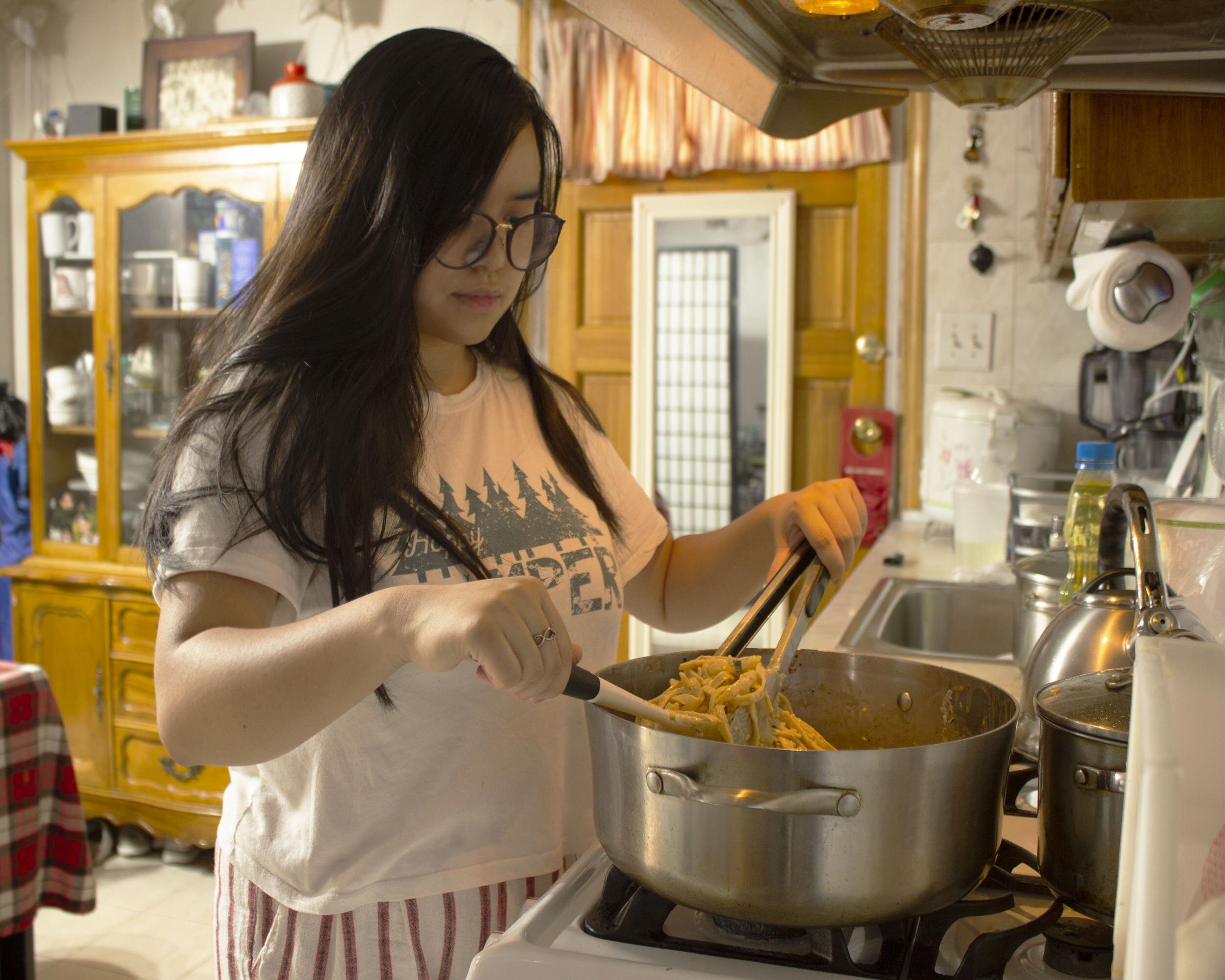JASMINE CATO
Cooking
Portrait courtesy of Jasmine Cato.
Bachelor of Architecture ‘20 at The City College of New York.
Inspiration
What inspired you to pursue cooking?
I grew up with a mom who loves to cook home-cooked meals and it was always exciting helping her out in the kitchen and taste the native flavors of the Philippines. We'd often take turns cooking dinner and I always surprise my family with my concoctions. Honestly, I enjoy playing around with food and seeing what I could make with simple ingredients. I've also been inspired by various cooks, recipes, and techniques that made me improve my skills further.
Buchi (Sesame Ball - Chinese Pastry) - Courtesy of Jasmine Cato
Roasted Chicken - Courtesy of Jasmine Cato
Time Management
How did you manage to maintain your time?
I always told my mom that cooking was my form of stress relief. After a while of staring into a computer screen, I'd give myself a break by visiting the kitchen and see what my mom was cooking. Oftentimes, when I'm doing tedious tasks like cutting vegetables or stirring the pot, I get inspiration for my project, believe it or not. Just like in architecture, the synthesis of certain concepts and elements can create amazing projects where users can experience and indulge themselves in your work. I even get the same satisfaction of cooking a meal when I thoroughly present a project.
Resources
What resources do you use?
Initially, I was lucky enough to utilize the variety of tools in my mom's kitchen. Later on, she supported my hobby and added more tools and ingredients that she wouldn't otherwise buy for herself.
The most used item would be my cast iron pan. Though it's a high-maintenance pan, it serves many purposes. It's great for getting a nice sear on steaks, chicken, pork chops, shrimps, etc. Cast-iron pans and pots are a staple to any kitchen, but it does require some care for it to last long.
Knives are important to a functioning kitchen. I mainly use a chef's knife for most of the cuts like chopping, mincing, cubing, slicing, etc. Paring knives are usually used for smaller vegetables or meat. The boning knife is also another favorite as it has a thin blade perfect for removing bones from meat, poultry, and fish. However, my mom taught me that cutting an onion with a boning knife reduces the amount of juice that it excretes, so in other words, you don't cry as much.
Honey Butter Chicken Biscuit - Courtesy of Jasmine Cato
Recipe
I’d like to share something popular in the Philippines that I think everyone should taste.
It’s called Lumpia (Pork Spring Rolls).
Tools & Ingredients
Large Bowls
Piping bag or Ziploc Bag
Pot
Spider Strainer or Normal Strainer
1lbs. Ground Pork/Chicken
2 Stalks green onion (finely sliced)
1/2 bag of carrots (4 medium sized, peeled, small dice)
1 yellow onion (small dice)
1 egg (beaten)
1 tsp. salt
1 tsp. pepper
1 tbsp. sesame oil (optional)
50 ct. spring roll wrapper
Vegetable oil for cooking
Lumpia (Filipino Pork Spring Rolls) - Courtesy of Jasmine Cato
GIF of Lumpia (Filipino Pork Spring Rolls) - Courtesy of Jasmine Cato
Wrapping
Take the wrapper and place it diagonally in front of you. With a piping bag or a Ziploc bag, fill it with the mixture and cut the tip of the bag off. Pipe the mixture in a straight horizontal line on the middle of the wrapper. Take the bottom corner and place it on top of the mixture, repeat with sides. Brush the top corner with water as adhesive. Roll the wrapped mixture all the way making sure that the top corner stuck on properly.
Cooking
Heat up a pot of oil. Cook rolls for about 10 minutes or until golden brown.
Serve immediately.
GIF of Lumpia (Filipino Pork Spring Rolls) - Courtesy of Jasmine Cato
Lumpia (Filipino Pork Spring Rolls) - Courtesy of Jasmine Cato
End Product
This recipe yields 75 rolls.
You can store it in the freezer if not used on the day of.
Want to #Cook?
I definitely recommend Binging with Babish as he imitates and sometimes upgrades dishes from pop culture, TV shows, movies, and others. For beginners, he even has a series called Basics with Babish where he teaches and explains how to cook easy popular dishes.
Shrimp Guacamole - Courtesy of Jasmine Cato











